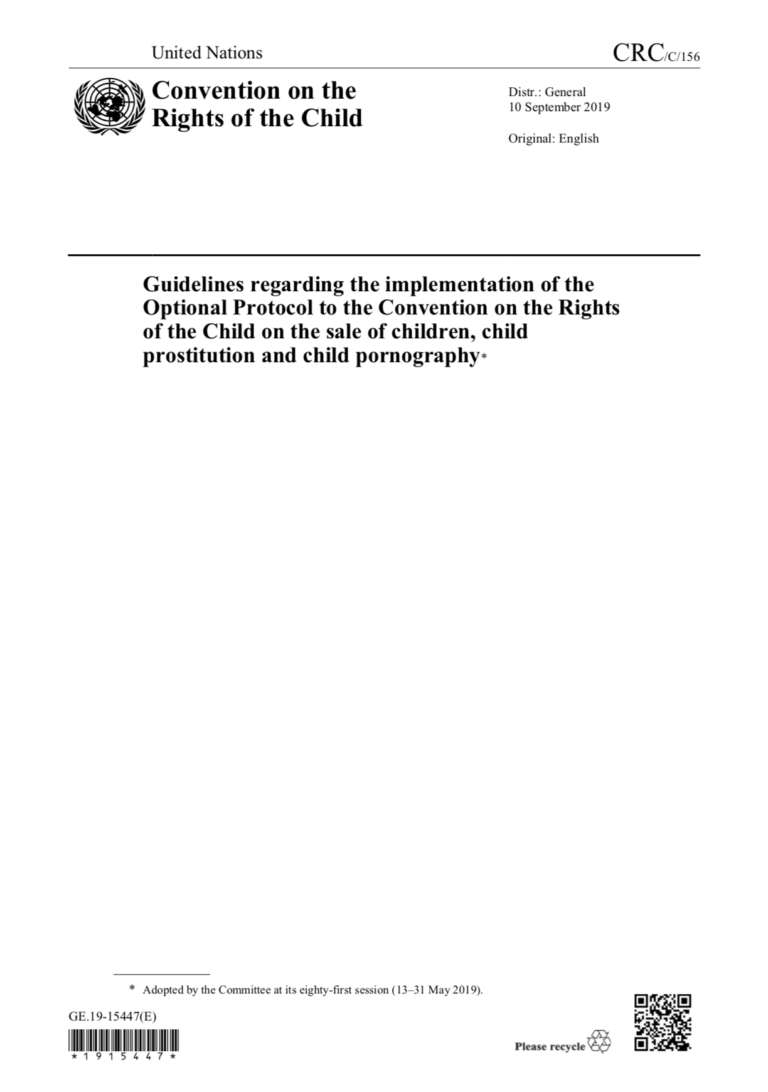The UN Committee on the Rights of the Child has long been concerned that many States parties are failing to properly implement the Optional Protocol to the Convention on the Rights of the Child on the sale of children, child prostitution and child pornography. The danger is that children in these countries are at increased risk of sexual exploitation. As a response, a new set of Guidelines were drafted in order to give States concrete advice on how to effectively protect children from sexual exploitation.
The aims of the newly launched guidelines are:
- to foster a deeper understanding of the Optional Protocol’s substantive provisions and of the various modern forms of sale and sexual exploitation of children in light of developments in the digital environment and given the increase in knowledge and experience with regard to the sale and sexual exploitation of children since its adoption;
- to enable more effective implementation of the Optional Protocol by States parties, and
- to ensure that the Optional Protocol remains an instrument that enhances the protection of children from sale and sexual exploitation, whether such offences are facilitated by ICT or not.

